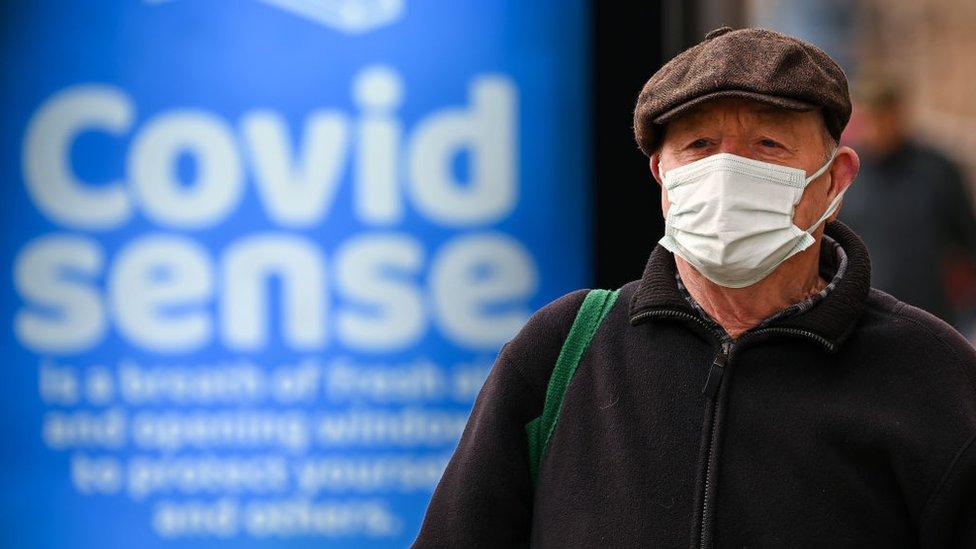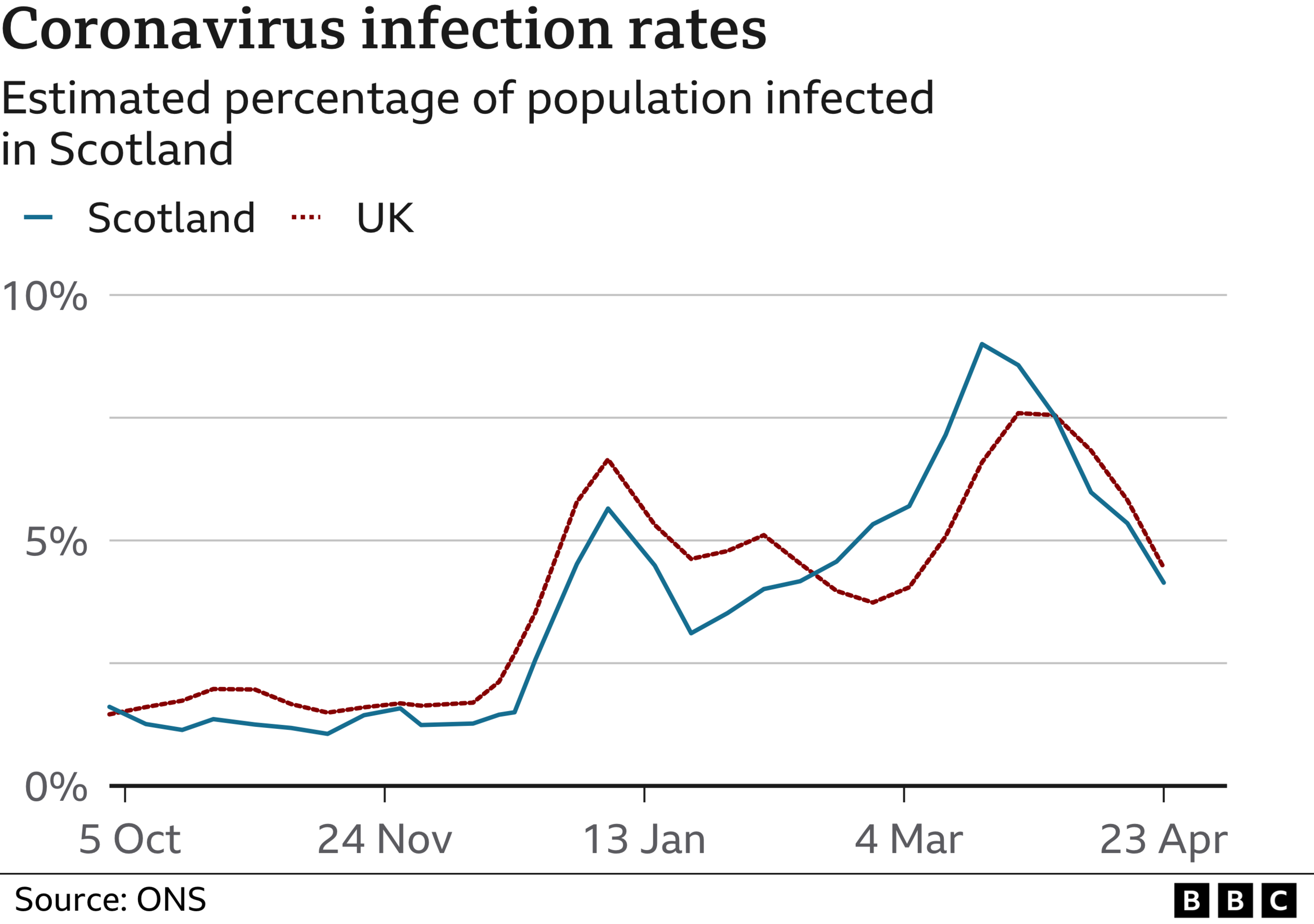Covid in Scotland: Estimated infection rate falls sharply
- Published

Covid infections in Scotland have dropped sharply, according to the latest estimates by the Office for National Statistics (ONS).
Weekly sampling indicates that one in 25 people in the country had Covid in the week ending 23 April, down from one in 19 the previous week.
That would suggest about 218,000 Scots had the virus last week, a fall of 63,000 from the previous estimate.
It is the fifth week in a row that infections in Scotland have dropped.
The weekly ONS sampling is regarded by many experts as the most accurate method of gauging the prevalence of the virus, as not all positive lateral flow results are reported.
It also picks up asymptomatic infections among people who would not normally seek a test.
The research broadly corresponds with Public Health Scotland testing figures, which suggest case numbers have been falling steadily since mid-March.

On Wednesday it emerged the number of people admitted to hospital in Scotland with the virus has almost halved over the last four weeks.
The one in 25 estimate published in the latest ONS Coronavirus Infection Survey, external is the lowest for Scotland since February.
It compares with a record high of one in 11 for the week ending 20 March.
One in 25 people were also thought to have had the virus in England and Northern Ireland, while the figure was one in 18 in Wales.
Across the UK, 2.9 million people are thought to have had the virus recently, down from 3.8 million the previous week.
While the figures suggest the surge in Covid-19 driven by the Omicron BA.2 variant is now receding, prevalence remains high by historical standards.
The ONS data covers people in private households and does not include those in hospitals, care homes and other communal establishments.
New guidance
The improving picture will see self-isolation guidance end this weekend for people in Scotland who have Covid-19 or symptoms of the virus.
From Sunday, public health advice will change to a "stay at home" message for people who feel unwell or have a fever.
They will no longer be advised to take a PCR test and all contact tracing will end.
A leading public health expert welcomed the move and said Scotland was now treating Covid-19 like any other virus.
But Prof Linda Bauld told BBC Radio's Good Morning Scotland the pandemic was not yet over.
And she warned measures may need to be reassessed if a new variant "really challenged" the progress made.
Prof Bauld, of the University of Edinburgh, said: "Essentially we are moving to a stage now where we are less worried about infection and what we're focusing on is trying to find people who have the virus, who need support or are supporting those who are most vulnerable.
"It means that self-isolation for many people will not be required or expected in the way it was before unless they feel really unwell, for example, they have a high fever."
From the end of Saturday the NHS will also be taken off an emergency footing.
But those who work in health or social care sectors and those visiting hospitals and care homes will still be able to access Covid testing.

